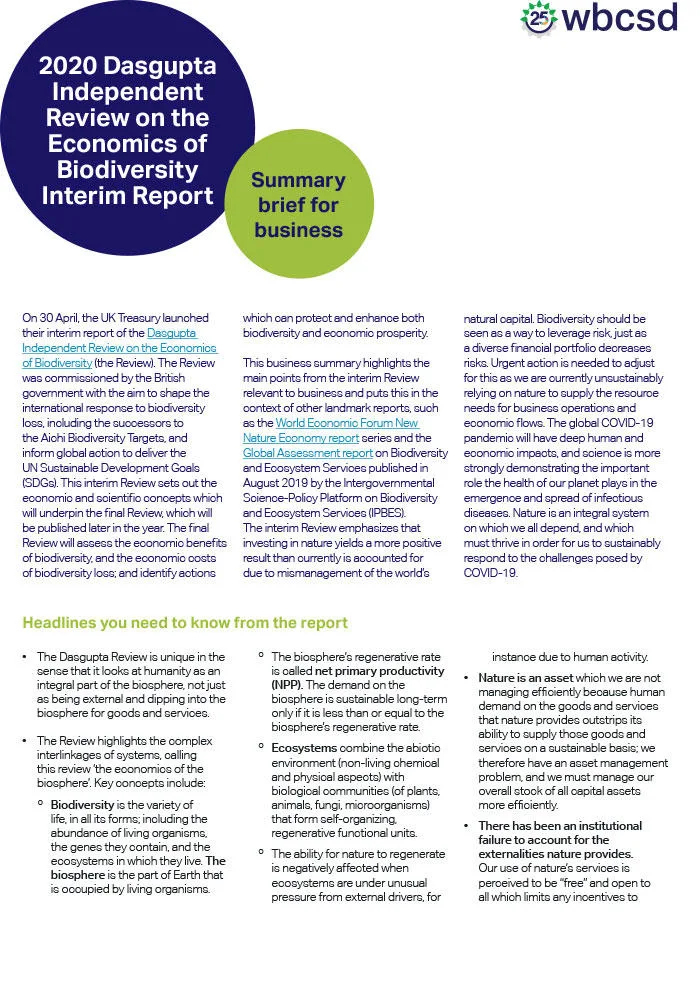2020 Dasgupta Independent Review on the Economics of Biodiversity Interim Report
Published: May 28, 2020

On 30 April, the UK Treasury launched their interim report of the Dasgupta Independent Review on the Economics of Biodiversity (the Review). The Review was commissioned by the British government with the aim to shape the international response to biodiversity loss, including the successors to the Aichi Biodiversity Targets, and inform global action to deliver the UN Sustainable Development Goals (SDGs). This interim Review sets out the economic and scientific concepts which will underpin the final Review, which will be published later in the year. The final Review will assess the economic benefits of biodiversity, and the economic costs of biodiversity loss, and identify actions which can protect and enhance both biodiversity and economic prosperity.
This business summary highlights the main points from the interim Review relevant to business and puts this in the context of other landmark reports, such as the World Economic Forum New Nature Economy report series and the Global Assessment report on Biodiversity and Ecosystem Services published in August 2019 by the Intergovernmental Science-Policy Platform on Biodiversity and Ecosystem Services (IPBES). The interim Review emphasizes that investing in nature yields a more positive result than currently is accounted for due to mismanagement of the world’s natural capital. Biodiversity should be seen as a way to leverage risk, just as a diverse financial portfolio decreases risks. Urgent action is needed to adjust for this as we are currently unsustainably relying on nature to supply the resource needs for business operations and economic flows. The global COVID-19 pandemic will have deep human and economic impacts, and science is more strongly emonstrating the important role the health of our planet plays in the emergence and spread of infectious diseases. Nature is an integral system on which we all depend, and which must thrive in order for us to sustainably respond to the challenges posed by COVID-19.